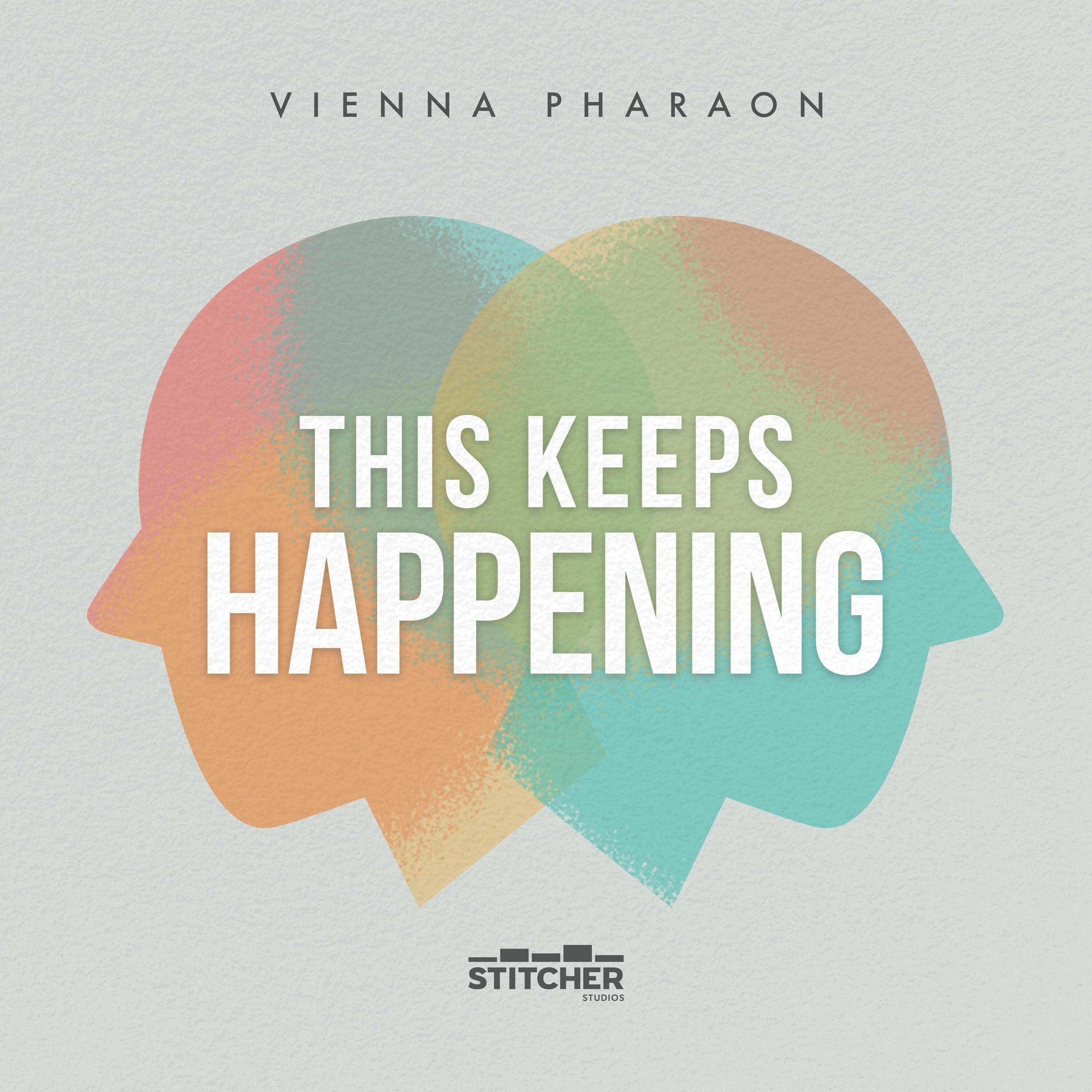Heading Home for Thanksgiving? Therapist Vienna Pharaon Has the Advice We All Need to Navigate Tricky Family Dynamics
"This time of year is tricky."
So says Vienna Pharaon of the holidays. Our shoulders drop as we hear this from the licensed marriage and family therapist. Along with the joy and love, the holidays can bring tension and combative energy when gathering with family. That is why Pharaon—who focuses on helping people heal unresolved trauma from family origin wounds—believes it's beneficial to "have some tangible things when entering that space."
Here, in her notably compassionate way, she walks us through how to find peace, calm, and even just a sense of being okay amidst tricky family dynamics.
A CONVERSATION WITH VIENNA PHARAON, LFMT
Vienna, the holidays are here, and with them come many feelings. As a clinician, what do you see regarding people's feelings around family dynamics this time of year?
There's always the frenetic energy, expectations, shame, guilt, and boundarylessness. There are all those things. Some people say this is their favorite time of year, and others say this is their least favorite time of year. Going home is lovely for some, but for others, going home is where the abuse, criticism, or boundarylessness is. It's also where the reminders of what is unresolved are. Family dynamics are the gift that keeps on giving.
I hear so many people say they feel they are a grown, mature, wise adult, and then when they walk through that doorway, they're 13 years old again. They go in mentally and emotionally prepared, and then just one look, one comment, sets them off.
Why does that happen?
The reason we get set off so easily there is because we have so much irresolution. That is what my book is all about: the unresolved pain in our family systems and how that gets activated in our adult lives. And when we go back to the source of our pain, we're reminded in these moments that they can't acknowledge things or haven't changed. Maybe dad's still drinking as heavily, or mom's still making that comment about my body. Whatever it is, we re-enter this space where we see so much of the same stuff as we always did. So, there's a real stress that happens to the system.
In therapy, I often ask, 'How do you feel right now?' when someone is feeling reactive or activated. Often, we may feel like a teenager who's ready to battle or a seven-year-old who doesn't have a voice. When we re-enter these systems, where there still is irresolution, it is easy to go back to these young and immature states and fall back into the pattern or role we once had as a kid.
How can we start to thwart this from happening?
A lot of this is the preparation for, the choosing of, and looking at: How can I succeed here? So instead of going home for three nights and staying over in your childhood home, maybe you can take a day trip or get an Airbnb or a hotel. It is about choosing something that allows you a bit of space. It is about setting yourself up for success.
I always remind people, and I mean this very lovingly, to stop being surprised by the unsurprising. For instance, we may be like, Wait, this person who has always behaved this way is acting this way again? No way! We have to stop being surprised by what we know about people. This is hard to do in family systems because we want to hold a hopefulness that maybe they will be different, maybe something will have changed, maybe this time… We will constantly negotiate and bargain with ourselves to allow hope to enter. Hope is a beautiful thing. We know that hope saves us in moments, for sure. But sometimes hope has us clinging to our suffering:
If I keep hoping that you will be different than I know you are…
If I keep hoping you will acknowledge me when I know you can't…
If I keep hoping that you will show up differently when you will not…
That is when we keep pulling ourselves into the pain and the suffering. So, it's about acknowledging: What do I know to be true? Can you acknowledge what you know to be true instead of what you hope to be true before you enter the family dinner or the visit? Can you learn how to be in relationship with where and who they are? So many of us have this fantasy of what our family will look like or how that particular parent will show up, and we cling to this fantasy. That clinging is a protection that distracts us from actually accepting who they are, their capacity, and where their limitations are.
What if those limitations are too much to handle? Let's say Uncle Bob is too mean, or Cousin Phil never listens.
For some people, of course, that means they're going to be estranged, or they're going to be cut off. There are certainly cases where it is appropriate not to have someone in your life. But I find most of the time that most people don't want that. Most people I talk to want to find a way to be in a relationship with their family. We want to find a way. But when we can't accept who they are and how they show up, that's where we get caught in the dance or the power struggle. In some ways, we choose not to pull ourselves out of the dance. There is this part that will go to battle with them by becoming horn-locked in the patterns we have. But liberation happens when we say, 'I'm going to stop looking for you to do that.' When we acknowledge the grief, sadness, and pain of them not being the person, human, parent, or adult that we would like them to be, and when we let that be and interact with them based on their capacity, what happens?
Consider: What happens when I enter knowing exactly who you are and exactly what you're capable of? How do I experience this dinner or these few days differently?
The essence of choice seems critical here. Will you dig into the idea of choice further?
So much of our trauma or pain comes from the absence of our choice. And so, for our healing, choice is required because, as kiddos and teenagers, whenever something is traumatic or wounding, it's because there was an environment in which you did not have choice. So as you move through this—and when I say 'this,' I mean your healing, navigating the family relationship differently—choice has got to be a part of it. And really, it is even as simple as going for three days or one day, staying over at your family's or in a hotel, or standing up from the table and going for a walk. It's recognizing where your choice is.
Some may say, 'I don't have choice because my mom would be so hurt if I didn't stay for the week.' There's the guilt, shaming, criticism, and a lot of stuff that families can do to pressure us, even as grown adults, to do things we might not want to do. Sometimes, people may rather stay for three days because that's more tolerable than the guilt trip, fighting, or shaming that may arise from not staying. People have to discern what is more tolerable for them. But again, it's about bringing your awareness to where your choices are and then finding choices within the choice to give yourself a sense of grounding.
What tools can help find that grounding in these tense times with family?
There are types of things that are very important in this environment to make you feel witnessed. For instance, if you are going [to the dinner or visit], do you have a partner or a friend with you? Do you have a friend on speed dial where you can step aside and call and acknowledge one another? This could be somebody who relates to what you're going through. It's important to feel heard and understood and to have a teammate.
I also love a voice memo that you can listen to. You record this memo from your wise, mature adult self beforehand. As I said, sometimes, in these dynamics, we are no longer wise, mature adults. Suddenly, one comment and we're back to being a teenager ready to battle. When this happens, we can listen to our voice note.
Here's an example of a voice note to record:
'All right, it happened again, didn't it? You must be really revved up, and you probably want to go to battle with dad. You want to prove to him why what he said was incorrect. And I hear you. But we're not going to engage with someone who has to win and needs to be right. That is a path that takes you further away from yourself. So I see you, hear you, honor you, and acknowledge you. Now let's take a walk.'
You can record some version of that, so when you press play, you can hear your wise, mature adult self acknowledging what you already knew was going to happen. I love the voice memo because there is something about hearing ourselves in a regulated, calm moment.
Lastly, what is your advice for handling acute moments of tension, such as when someone makes an insulting comment across the dinner table?
This is a tricky one for so many because there's the desire to speak your truth and stand up for something you disagree with or don't like to hear. There are political, religious, and social issues that people do have differences on—and we know that family systems do have differences. When people say something so insulting or so far away from what is true for you, I believe this to be a question of: Do you engage or not engage? Sometimes, we may think we're being quiet or complicit if we don't engage. I believe there's more nuance to this because to fight someone when it's going nowhere is not worth it. And I don't know if that is valuable for you.
So, in these moments with family, where people are committed to their viewpoints and perspectives and are not here to have open dialogue, it's about thinking: Is my choice going to lead me to more suffering or peace? I sway toward non-engagement. That doesn't mean you agree with what they say. But you can get up from the table and acknowledge what you believe to yourself, a friend, or a partner. Again, I lean towards non-engagement here because it doesn't go anywhere in these situations. All it does is cause more distress, disconnection, conflict, and terrible feelings.

Vienna Pharaon is a licensed Marriage and Family Therapist and author of national bestseller The Origins of You: How Breaking Family Patterns Can Liberate the Way We Live and Love. Pharaon is also host of the new podcast This Keeps Happening, Learn more at viennapharaon.com and follow Vienna at @mindfulmft.
Please note that we may receive affiliate commissions from the sales of linked products.



